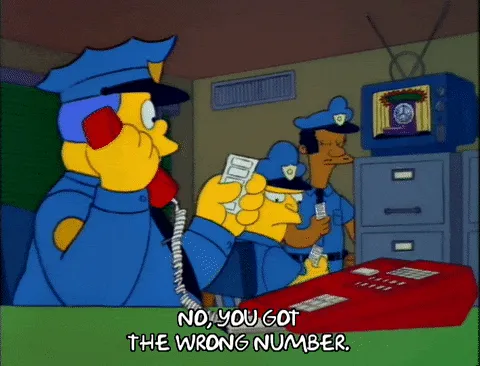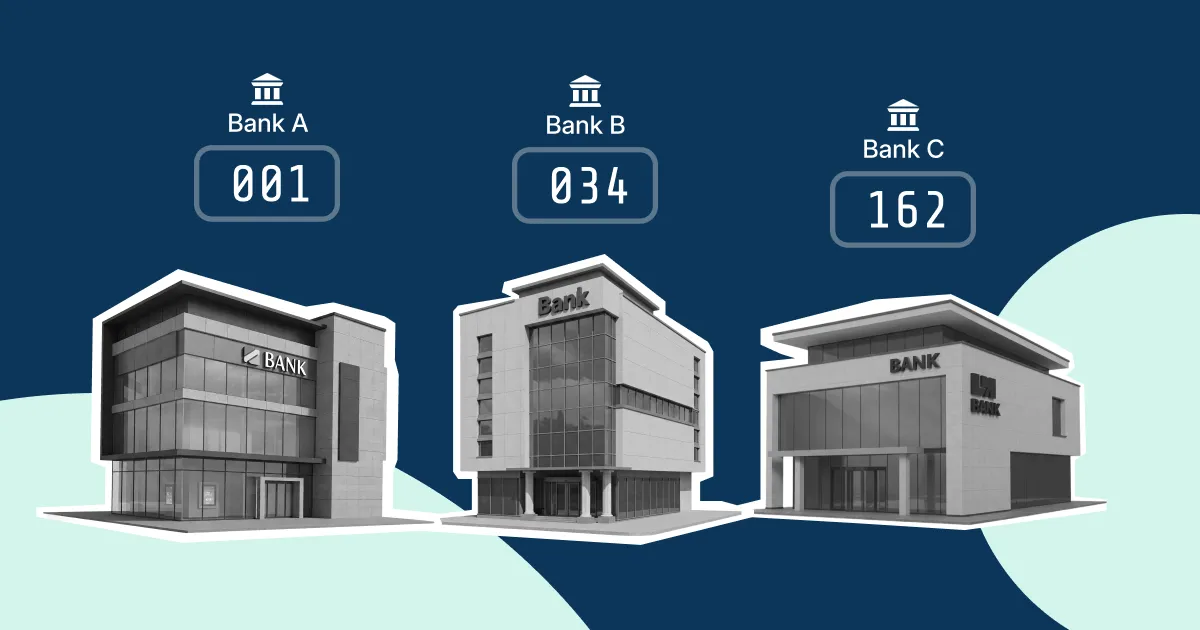Summary
- A sort code is a six-digit code that identifies banks and their branches in the UK and Ireland
- Together with bank account numbers, sort codes ensure payments are routed to the correct recipients in the UK and Ireland without delay
- They are mandatory for domestic transfers and direct debits within the UK
- International money transfers to the UK and Ireland also require sort codes along with international bank identifiers like the SWIFT code, BIC, and IBAN
- Sort codes ensure efficiency in payment services by preventing errors and misdirection of funds and securing faster payments by averting delays
When your company in Singapore sends money to its clients or suppliers in the United Kingdom, it must furnish two important numerical bank codes—a UK bank account number and a sort code. We are all familiar with bank account numbers, but what exactly is a sort code?
Simply put, a sort code is a unique identifier for banks and their branches in the UK and Ireland. As long as you present your supplier's UK bank account number and sort code to your own bank along with instructions for a fund transfer, you will be able to send money hassle-free and without delays. Sort codes are essential for money transfers and direct debits, domestic and international.
With the UK being a top trading partner for Singapore, especially in trade in services, here is a detailed explanation of what a bank sort code is, where to find one, and what you can do with one. ¹

What is a sort code?
Every bank account opened in the UK or Ireland comes with an account number and sort code. The latter is a six-digit code that identifies your bank and branch in the UK or Ireland. The first two digits identify the bank, while the remaining four digits indicate the branch where the account has been opened. So, a bank will have different sort codes for its branches in London and Manchester.
However, an online bank that doesn't have a physical address and, therefore, no branches will have the same sort code for all its account holders.
Bank sort codes ensure payment efficiency by processing and routing funds accurately without delays. They are important for all kinds of money transfers, such as direct debits for recurring payments (such as subscriptions), automated payments, or electronic transfers.
So, each time your Singapore-based company transfers funds to a UK supplier/contractor—whether by bank transfer, online payment, card payment, automated payment, or any other means—your bank or payment service provider will ask you to present a sort code. You will also need this code when you collect payment from a UK customer's bank account via direct debit.
Other countries have their own versions of the sort code. The US has a nine-digit-long routing number, China uses a 12-digit CNAPS (China National Advanced Payment System) code, and Japan uses a seven-digit Zengin code. The Indian equivalent of it is an 11-character alphanumeric IFSC (Indian Financial System Code).
What is a bank account number in the UK?
A bank account number is a string of numbers that identifies a bank account. Each account has its own unique number.
In the UK and Ireland, bank account numbers are eight digits long. Some banks do issue a shorter number, but one or more zeros are usually added in front to reach eight digits.
Taken with the sort code, a UK bank account number facilitates seamless payments and fund transfers, facilitating smooth business transactions to and from the UK.
Understanding sort code format
The six digits in a sort code are displayed as three pairs of numbers, for example, 12-34-56. The first pair of digits refers to the bank (12), the next pair identifies the city or region where the branch in question operates (34), while the last two digits refer to the exact branch within that location (56).
Since each pair of digits holds a distinct meaning, getting even one digit wrong can get your payment request rejected or result in misdirected funds.

Importance of sort codes in business transactions
Sort codes come into play when corporate account holders (or individual accounts) make domestic transfers or issue direct debit instructions within the UK, and even when they route money to the UK from beyond its borders.
Sort codes are integral to a variety of popular payment methods, such as high-value CHAPS payments (clearing house automated payment system) favoured by big corporations to make important automated payments in pounds sterling. They also support BACS direct credits and direct debits, which are bank-to-bank transfers powered by the Bankers’ Automated Clearing System, and Faster Payments, a payment system that facilitates real-time payments up to a stipulated limit via mobile or online banking.

Sort codes benefit business transactions and the payment industry in three ways:
- Accurate transaction routing: By identifying the bank and branch down to the last detail, it ensures the money gets to the right place.
- Payment efficiency: It ensures businesses, financial institutions, and payment service providers can process payments correctly. This helps cut down on losses due to money being routed to the wrong accounts, which can lead to cashflow problems and operational disruptions.
- Faster payments: It drives faster and on-time payments by reducing delays, which in turn helps businesses improve their cashflow management and operational efficiency, keep suppliers and clients happy, and earn a reputation as a timely payer.
Where to find sort code and bank account number
Six places to look to locate your bank account number and bank sort code:
- By logging into online banking, where you can find them along with your other bank details.
- On your banking app.
- On your cheque book, where it is printed on the bottom of each cheque.
- On your bank statement or deposit slip.
- On your bank card, printed either on the front or back. However, not all banks display this information.
- On a sort code checker, an online search and verification tool. Most banks and financial institutions have a sort code checker on their websites. Make sure to use a reputable sort code checker for the most accurate results.

Sort code vs other international payment codes
Bank sort codes primarily drive domestic transactions and direct debits in the UK. They are also used to transfer funds and make payments internationally, usually in conjunction with another bank code such as a SWIFT code, BIC (bank identifier code), or IBAN (international bank account number).
Sort code vs SWIFT code/BIC
A SWIFT code is an alphanumeric code that identifies the bank, branch, city, and country of a specific account. All banks have their own SWIFT codes and you will need to furnish them when you, say, make a wire transfer across international borders.
A SWIFT code is eight to 11 characters long with the following format:
- Bank identifier code: First four characters.
- Country code: Next two characters.
- Location code: Next two characters. It points to the exact location of the bank branch.
- Branch code: Final three characters.
The SWIFT (Society for Worldwide Interbank Financial Telecommunication) network for international transactions is popular globally, averaging 53 million-plus financial messages in a day (up from 44.8 million in 2022) and spread across more than 220 countries and 11,500 institutions. ²
A SWIFT code is sometimes called a BIC, though there are slight differences between the two. Both are globally accepted standards for financial messaging and transactions, but the former are common across the globe, while the latter is unique to European banks. A BIC also comprises eight to 11 digits arranged in this manner:
- Institution key: First four characters (alphanumeric).
- Country code: Next two characters (letters only).
- Location code: Next two characters (alphanumeric).
- Branch code: Some BICs have an optional three-character code that identifies the branch.

Sort code vs IBAN
Yet another internationally standardised payments system, IBAN serves as an identifier that pinpoints the bank account, bank, branch, and country, as well as the exact account number. The UK IBAN format is 22 characters long (alphanumeric), but elsewhere, it can go up to 34 characters. The UK IBAN is arranged thus:
- Country code: First two characters.
- Check code: Next two digits. This is unique for each account holder.
- Bank identifier code: Next four characters (letters only).
- Sort code: Following six digits.
- Bank account number: Remaining eight digits.
International bank account numbers or IBANs are primarily issued by European banks but banks elsewhere are starting to issue them as well. To make an online banking transaction (for example) from Singapore to the UK or the Eurozone, you'll need both an IBAN and a SWIFT code/BIC. In contrast, global transfers to the US only require a SWIFT code.
Sort code vs SWIFT code vs IBAN
Enjoy fast, hassle-free international transfers with Aspire
Learning how the sort code works is essential when your business makes frequent transactions in the UK. However, another important factor is ensuring that you can make these transfers through a financial tool that understands the challenges of cross-border payments. From our experience, businesses often cite high FX rates and slow payment processing as their biggest frustrations when it comes to international transfers.
This is where an Aspire Business Account can help. With Aspire, you can create multi-currency accounts in SGD, USD, GBP, and EUR, allowing you to send and receive funds in these currencies while avoiding unnecessary conversions and FX fees.
Aspire’s Business Account also enables you to send and receive money in more than 30 currencies across 130+ countries, with competitive and transparent FX rates. Our priority is to deliver faster payments across international borders, including same-day transfers in 15+ major currencies—all directly from the Aspire platform.
Our business account comes with impressive expense management support, smart integrations for seamless financial management, and unlimited virtual corporate cards for your employees.
Frequently asked questions (FAQs)
Is a sort code the same as a SWIFT code?
A sort code is issued by UK and Irish banks and is necessary for domestic transfers and direct debits within the region. A SWIFT code is a global bank identifier used for international transactions. For international transactions to and from the UK, a SWIFT code is used alongside a sort code and UK bank account number.
Do Singapore banks have a sort code?
No. Sort codes are unique to banks in the UK and Ireland.
Do I need a sort code to transfer money?
Yes, if you are transferring money to the UK, whether domestically or internationally.
Do all banks have sort codes?
Yes, though they go by different names. Sort codes are common to the UK and Ireland. The US has a routing number, China has a CNAPS code and Japan Zengin code, to name a few.
Frequently Asked Questions
- Department of Statistics Singapore - https://www.singstat.gov.sg/modules/infographics/singapore-international-trade
- SWIFT - https://www.swift.com/about-us/who-we-are










%201.webp)


.webp)